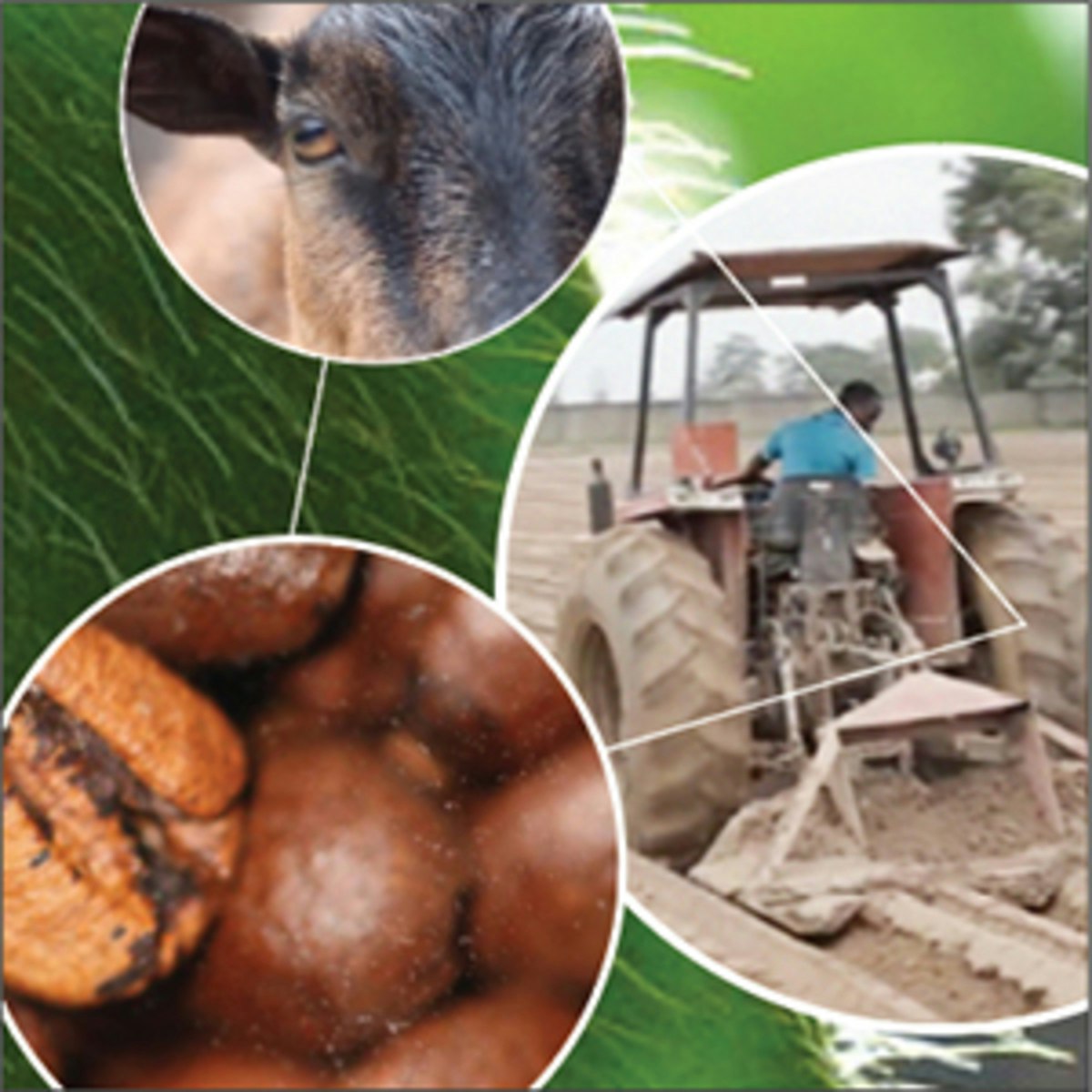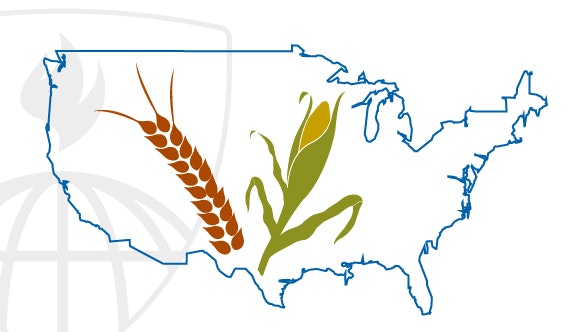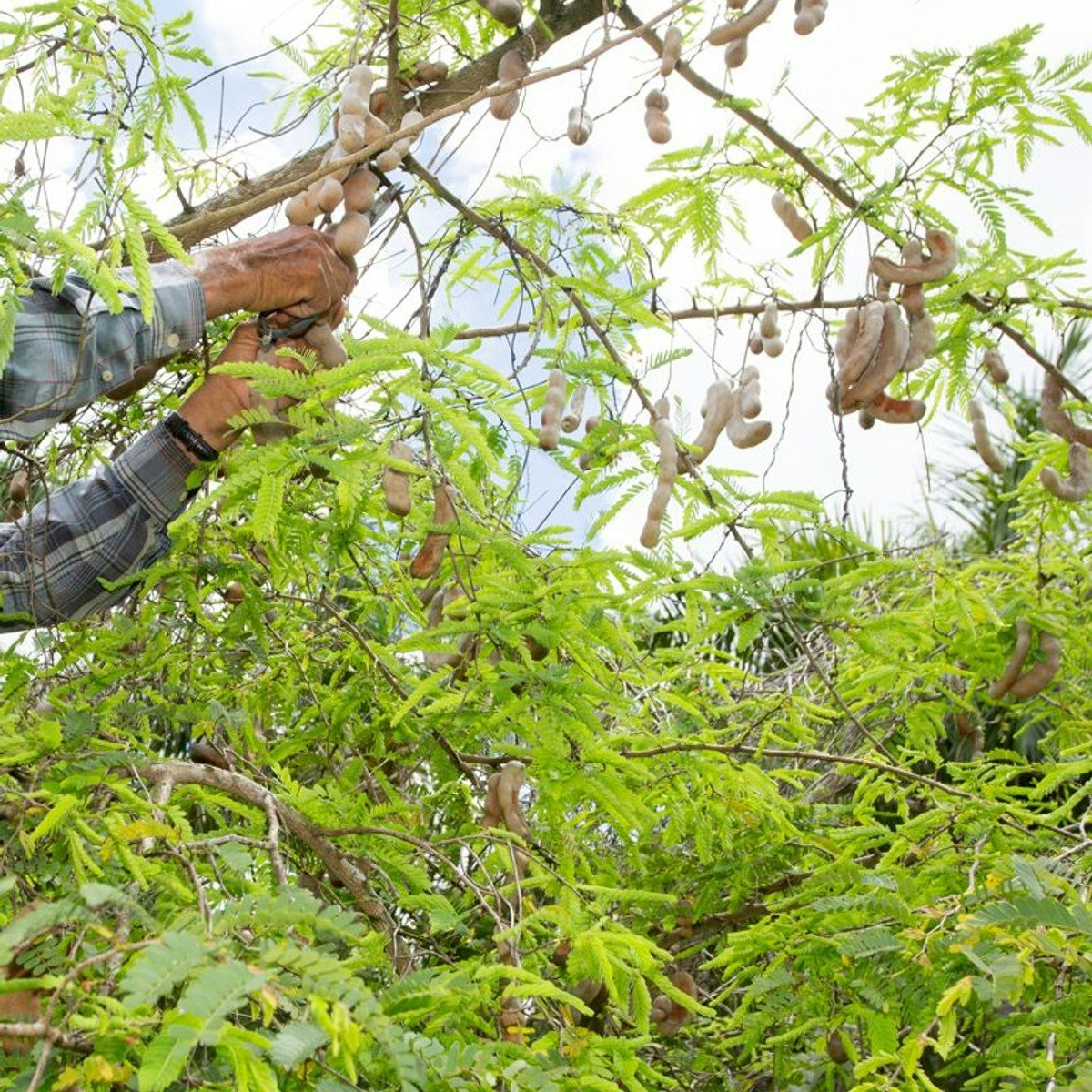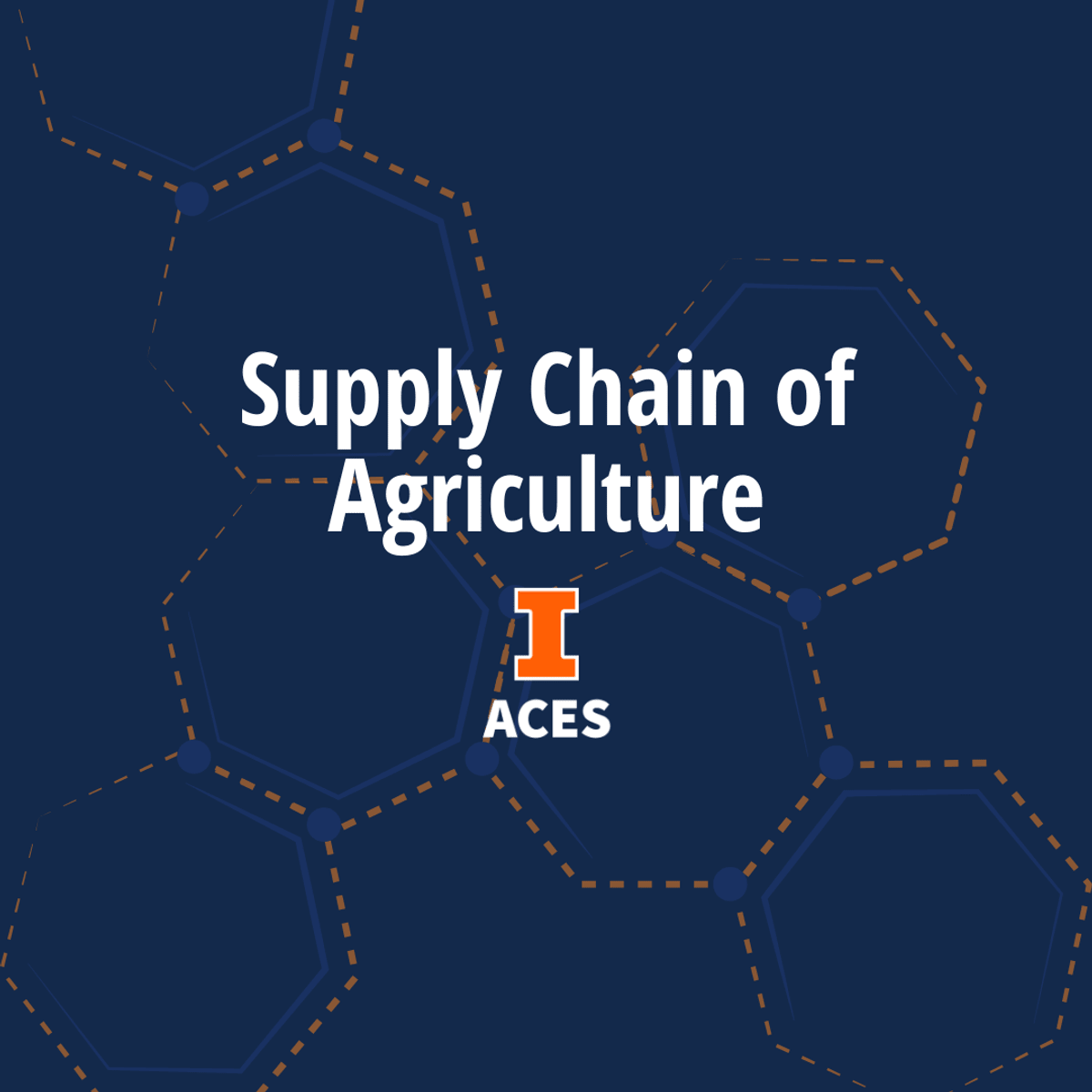Food Security
Understanding Food Security: A Comprehensive Guide
Food security exists when all people, at all times, have physical, social, and economic access to sufficient, safe, and nutritious food that meets their dietary needs and food preferences for an active and healthy life. This multifaceted concept rests on four key pillars: availability, access, utilization, and stability. Achieving food security is not just about producing more food; it involves complex interactions between agriculture, economics, health, policy, and the environment.
Working in the field of food security offers the chance to tackle some of the world's most pressing challenges head-on. Professionals in this area contribute to developing sustainable agricultural practices, shaping policies that ensure equitable food distribution, and implementing programs that improve nutrition and health outcomes for vulnerable populations. The work is often deeply rewarding, connecting individuals with global efforts to alleviate hunger and build more resilient communities.
For those intrigued by global challenges and seeking impactful careers, exploring food security can be an exciting path. It's a field that blends scientific understanding with social awareness, requiring analytical skills to assess problems and creativity to devise solutions. Whether you are interested in agricultural innovation, economic development, public health, or environmental sustainability, food security offers diverse avenues for contribution.
Historical Context of Food Security
From Post-War Production to Modern Frameworks
The concept of food security has evolved significantly over the past century. Early efforts, particularly after World War II, focused heavily on increasing agricultural production to ensure sufficient global food supply. National policies often centered on boosting yields through technological advancements like the Green Revolution, aiming primarily at food availability. The underlying assumption was that producing more food would automatically solve hunger.
However, events like major famines in the 1970s, despite adequate global food stocks, highlighted the limitations of this production-centric view. It became clear that availability alone did not guarantee access. This realization spurred a shift in thinking, acknowledging that poverty, political instability, and distribution failures were critical barriers preventing people from obtaining the food they needed.
This shift gained formal recognition at the 1974 World Food Conference, which broadened the definition of food security to include access. Subsequent developments continued to refine the concept, incorporating nutritional aspects (utilization) and the consistency of access over time (stability). The focus expanded from mere calorie sufficiency to encompass dietary quality and the resilience of food systems against shocks.
Key Milestones and Shifting Priorities
The 1996 World Food Summit in Rome marked another pivotal moment, reaffirming the right of everyone to have access to safe and nutritious food. The Rome Declaration explicitly linked food security to poverty eradication and peaceful, stable societies. This event cemented the multi-dimensional nature of food security, emphasizing economic and physical access alongside availability.
More recently, the conversation has integrated concerns about environmental sustainability and social equity. The rise of challenges like climate change, resource depletion, and growing inequality has pushed the agenda beyond immediate hunger relief towards building long-term, resilient food systems. Concepts like food sovereignty, which emphasizes communities' rights to define their own food and agriculture systems, have also gained prominence, challenging traditional top-down approaches.
Today, food security is understood as a complex system issue, intertwined with sustainable development, climate action, public health, and human rights. The focus is increasingly on transforming food systems to be more inclusive, equitable, and environmentally sound, ensuring that they can nourish a growing global population sustainably for generations to come.
These foundational books offer insights into the economic and systemic aspects of global food challenges.
Understanding the historical context helps frame current policy debates and research directions.
Key Concepts and Measurement
Understanding Food Insecurity Scales
Measuring food security is crucial for identifying vulnerable populations, designing effective interventions, and tracking progress. Various tools and scales have been developed to assess the different dimensions of food insecurity. One widely used framework is the Integrated Food Security Phase Classification (IPC), which provides a standardized scale to classify the severity of food insecurity situations, ranging from Phase 1 (Minimal) to Phase 5 (Famine). The IPC uses a convergence of evidence approach, analyzing data on food consumption, livelihoods, malnutrition, and mortality.
Another important tool is the Food Insecurity Experience Scale (FIES), developed by the Food and Agriculture Organization (FAO) of the United Nations. FIES is a survey-based module that captures individuals' or households' experiences of accessing food. It asks questions about behaviors and anxieties related to food scarcity, allowing for comparable measurement of food insecurity severity across different cultural contexts. This experiential approach complements other metrics by providing insights into the human dimension of food insecurity.
Explain Like I'm 5 (ELI5) on Scales: Imagine hunger is like being thirsty. Some people are just a little thirsty sometimes (mild food insecurity), maybe they worry about running out of water. Some people are really thirsty often and have to skip drinks (moderate food insecurity). And some people are dangerously thirsty and haven't had water in a long time (severe food insecurity or famine). Scales like IPC and FIES help us figure out how thirsty different groups of people are, so we know who needs water the most urgently.
Metrics for Assessment
Beyond overarching scales, specific metrics are used to measure different facets of food security. Caloric intake per capita is a classic measure of food availability and energy sufficiency, though it doesn't capture nutritional quality. Dietary diversity scores assess the variety of food groups consumed, serving as a proxy for nutrient adequacy and overall diet quality. Higher dietary diversity is generally associated with better health outcomes.
Assessing the 'access' pillar often involves measuring household income, food expenditure as a percentage of income, and market prices for staple foods. Geographic access, such as distance to markets, is also considered. The 'utilization' pillar involves metrics related to health and nutritional status, such as rates of stunting (low height-for-age) and wasting (low weight-for-height) in children, prevalence of micronutrient deficiencies, and access to clean water and sanitation, which affect the body's ability to absorb nutrients.
Resilience indices are increasingly used to measure the 'stability' pillar. These composite indicators attempt to quantify the capacity of households or communities to withstand shocks (like droughts, floods, or economic crises) without compromising their food security. They often combine data on assets, access to social safety nets, adaptive capacity, and exposure to risks.
Limitations and Considerations
While measurement tools have advanced significantly, accurately capturing the complexity of food security remains challenging. Data collection can be expensive and logistically difficult, especially in remote or conflict-affected areas. Metrics often rely on proxies, which may not perfectly reflect the reality on the ground. For instance, national-level caloric availability doesn't reveal distribution inequalities within a country.
Experiential scales like FIES offer valuable insights but can be influenced by cultural perceptions and subjective reporting. Combining quantitative data (like anthropometric measurements or income levels) with qualitative information (from interviews or focus groups) often provides a more nuanced understanding. Context matters greatly; a metric indicating food security in one setting might signify insecurity in another.
Furthermore, the dynamic nature of food security means that assessments need to be timely and frequent, especially in volatile situations. There's an ongoing effort to improve measurement methodologies, integrate new data sources (like satellite imagery for crop monitoring), and develop more predictive models to anticipate food crises before they escalate.
These courses delve into the complexities of food systems and measurement.
Global Challenges and Emerging Trends
Geopolitics, Climate, and Supply Chains
The global food system faces unprecedented pressures. Geopolitical conflicts, such as the war in Ukraine, have drastically disrupted global grain supply chains, leading to price volatility and impacting food availability in import-dependent nations. These events underscore the fragility of interconnected food systems and the disproportionate impact on vulnerable populations.
Climate change poses a persistent and growing threat. Extreme weather events like droughts and floods destroy crops, disrupt transportation, and reduce agricultural yields. Rising temperatures and changing precipitation patterns necessitate significant adaptation in farming practices. The World Bank highlights the urgent need for climate-resilient agriculture to mitigate these impacts, particularly in developing countries highly dependent on agriculture.
Competition for resources, such as land and water, is intensifying. The expansion of biofuel production, for example, often competes directly with food crops for agricultural land, raising complex ethical and economic questions about resource allocation. Sustainable intensification – increasing yields on existing farmland without causing further environmental damage – is a key area of focus.
Innovation and Technological Responses
In response to these challenges, innovation is playing a critical role. Precision agriculture, utilizing technologies like GPS, sensors, drones, and AI, allows for more efficient use of inputs like water and fertilizer, potentially boosting yields while reducing environmental impact. Adoption rates vary globally, often linked to farm size, access to capital, and digital literacy.
Reducing post-harvest losses is another major focus. Significant amounts of food are lost between the farm and the consumer due to poor storage, transportation, and processing infrastructure, particularly in developing regions. Innovations in storage technologies, improved logistics, and better market information systems are crucial for minimizing waste and increasing the amount of food that actually reaches consumers.
Emerging technologies like vertical farming and cultured meat offer potential pathways to produce food with smaller environmental footprints, though scalability and cost-effectiveness remain key considerations. Advances in biotechnology, including CRISPR gene editing, hold promise for developing crops that are more resilient to pests, diseases, and climate stress.
These courses explore the nexus of sustainability, resources, and global systems.
Formal Education Pathways
Building Foundational Knowledge
A formal education provides a strong theoretical and practical foundation for a career in food security. Undergraduate programs relevant to this field often include Agricultural Economics, Nutrition Science, International Development, Environmental Science, and Public Policy. These programs equip students with core knowledge in areas like agricultural production systems, human nutrition, economic principles governing food markets, environmental sustainability, and policy analysis.
Courses typically cover topics such as soil science, crop management, animal husbandry, food chemistry, macro and microeconomics, statistics, global health, and sustainable development. Students learn analytical methods to assess food systems, evaluate policy impacts, and understand the socio-economic factors influencing food access and utilization. Many programs also incorporate fieldwork or internships, providing valuable hands-on experience.
Building a strong interdisciplinary base is key, as food security problems rarely fit neatly into a single academic department. Exploring courses across Agriculture, Social Sciences, and Health & Medicine can provide a well-rounded perspective.
Specialization and Advanced Study
For those seeking deeper expertise or research-oriented careers, graduate studies offer opportunities for specialization. Master's and PhD programs allow students to focus on specific areas within food security, such as Food Policy Analysis, Agricultural Development, Supply Chain Analytics, Community Nutrition, Climate Change Adaptation in Agriculture, or Sustainable Food Systems.
Graduate programs emphasize research methodologies, advanced quantitative and qualitative analysis, and critical thinking. Students often engage in independent research projects or dissertations, contributing new knowledge to the field. Specializations might involve advanced modeling of food markets, designing and evaluating nutrition interventions, analyzing the political economy of food aid, or developing innovative agricultural technologies.
Research frontiers in food security are constantly evolving. Current areas of intense investigation include developing climate-resilient crops using tools like CRISPR, understanding the microbiome's role in nutrition, advancing agroecological approaches that integrate ecological principles into farm management, and optimizing complex food supply chains using data science and analytics.
These courses offer insights into specific aspects like agroforestry and systems analysis.
Online and Independent Learning
Leveraging Digital Resources for Skill Building
Beyond traditional academic routes, online learning offers flexible and accessible pathways to gain knowledge and skills in food security. Numerous online courses, webinars, and digital resources cover various aspects of the field, from foundational concepts to specialized technical skills. Platforms like OpenCourser aggregate offerings from universities and organizations worldwide, making it easier to find relevant learning opportunities.
For those new to the field or considering a career pivot, introductory courses can provide a solid overview of food security principles, global challenges, and key actors. More technical courses might focus on specific skills like Geographic Information Systems (GIS) for mapping food deserts, statistical analysis for evaluating program impacts, survey design for data collection, or supply chain management principles applied to food systems.
Online learning allows individuals to tailor their education to specific interests or career goals, often at their own pace. Many courses offer certificates upon completion, which can be valuable additions to a resume. The OpenCourser Learner's Guide provides tips on how to effectively structure self-learning and make the most of online educational resources.
These online courses provide foundational knowledge on sustainable food systems and related challenges.
Applying Knowledge Through Practice
Supplementing online coursework with practical application is essential for solidifying understanding and building a compelling profile. Fortunately, many organizations make valuable data publicly available, offering opportunities for hands-on analysis. Resources like FAOSTAT (from the UN Food and Agriculture Organization) provide extensive international statistics on food and agriculture. The World Food Programme's (WFP) Vulnerability Analysis and Mapping (VAM) unit often shares data and maps related to food security assessments.
Learners can undertake capstone projects using these open-source datasets. Examples include analyzing food price trends in a specific region, mapping food access disparities within a city (a local food desert analysis), simulating the potential impacts of different policy interventions, or developing a proposal for a community-based food security project. Such projects demonstrate practical skills and initiative to potential employers or academic programs.
Contributing to open-source projects related to food security or volunteering with local organizations focused on hunger relief or sustainable agriculture can also provide valuable experience. Engaging with online communities, forums, and webinars allows learners to connect with practitioners, stay updated on current issues, and build a professional network within the field.
Consider exploring these books for deeper dives into policy and systems.
Career Progression and Opportunities
Entry Points and Early Career Roles
Embarking on a career in food security can take many forms, often starting with roles that provide direct exposure to fieldwork or data analysis. Common entry-level positions include Field Coordinators or Program Assistants for non-governmental organizations (NGOs) implementing food security projects, Research Assistants supporting academic studies, or Junior Data Analysts processing and interpreting food security indicators for international organizations or government agencies.
These initial roles are crucial for building practical skills, understanding ground realities, and developing a network. Responsibilities might involve collecting survey data, monitoring project activities, liaising with local communities, contributing to reports, or managing small project components. While challenging, these experiences provide an invaluable foundation for future growth.
For those transitioning into the field, highlighting transferable skills is key. Experience in project management, data analysis, logistics, community engagement, or policy research from other sectors can be highly relevant. A willingness to learn and adapt, coupled with demonstrated passion for the mission, can significantly enhance employability.
Mid-Career Advancement and Specialization
With experience, professionals typically move into roles with greater responsibility and specialization. Mid-career paths often involve managing larger projects or programs, providing technical expertise, or focusing on policy influence. Titles might include Program Manager, Technical Advisor (e.g., in nutrition, agriculture, or monitoring & evaluation), Policy Advisor, or Supply Chain Optimization Specialist.
At this stage, individuals often develop deeper expertise in specific areas, such as designing climate-smart agriculture programs, analyzing the impact of trade policies on food security, managing large-scale food assistance operations, or developing national nutrition strategies. Strong analytical, communication, and leadership skills become increasingly important.
Networking and continuous learning are vital for advancement. Pursuing advanced degrees or specialized certifications, attending conferences, and publishing research or policy briefs can enhance credibility and open doors to new opportunities. Experience working across different types of organizations (e.g., NGOs, government, UN agencies, private sector) can also broaden perspectives and skill sets.
Leadership and Strategic Impact
Leadership trajectories in food security involve shaping strategy, influencing policy at high levels, and managing complex organizations or initiatives. Senior roles can include Country Directors for international NGOs, Division Heads or Directors within UN agencies (like WFP or FAO), senior government officials responsible for food and agriculture policy, or leaders in research institutions.
Another growing area is the private sector, particularly in agritech and sustainable food businesses. Experienced professionals might lead sustainability initiatives within food companies, manage investment funds focused on agriculture, or found startups developing innovative solutions for food production, distribution, or waste reduction. These roles often require a blend of technical expertise, business acumen, and strategic vision.
Reaching leadership positions typically requires extensive experience, a proven track record of impact, strong management capabilities, and the ability to navigate complex political and institutional landscapes. The ability to build partnerships, mobilize resources, and communicate compellingly about the importance of food security is paramount.
Understanding the broader context of public health is also beneficial.
Ethical Considerations in Food Security
Equity, Rights, and Access
Addressing food security inevitably involves navigating complex ethical dilemmas. Issues of equity are central, particularly concerning access to resources like land and water. Large-scale land acquisitions, sometimes referred to as "land grabbing," can displace smallholder farmers and indigenous communities, undermining their livelihoods and food security, even if intended to boost national food production. Respecting land tenure rights and ensuring equitable benefit-sharing are critical ethical considerations.
The distribution of food aid and the design of social safety nets also raise ethical questions. How should limited resources be targeted? How can programs avoid creating dependency or distorting local markets? Ensuring that interventions respect dignity, promote empowerment, and reach the most vulnerable requires careful ethical reflection and community participation.
International trade agreements significantly impact global food flows and prices. Ethical debates surround the fairness of trade rules, the effects of agricultural subsidies in wealthy nations on farmers in developing countries, and the balance between promoting free trade and protecting national food security interests.
Technology, Culture, and Sustainability
Technological advancements in agriculture, while offering potential benefits, often come with ethical considerations. The development and deployment of genetically modified (GM) crops, for instance, spark ongoing debates about potential environmental risks, corporate control over seeds, and varying levels of cultural acceptance across different societies. Balancing potential productivity gains with ecological and social concerns is a key challenge.
The push towards sustainable agriculture also involves ethical choices. What constitutes "sustainable"? How should trade-offs between environmental protection, economic viability, and social equity be managed? Promoting agroecological approaches, for example, may align with environmental goals but requires significant shifts in farming practices and support systems.
Ensuring food safety is another ethical imperative, involving regulations, monitoring, and transparency throughout the food chain. Ethical considerations also extend to animal welfare in livestock production and the environmental footprint of different dietary patterns. Promoting diets that are both healthy and sustainable requires navigating cultural food preferences and economic constraints.
These resources touch upon philosophical and systemic views of food.
The Role of Technology in Food Security
Data-Driven Decision Making
Technology is increasingly integral to efforts aimed at improving food security. Satellite imagery and remote sensing technologies allow for large-scale monitoring of crop health, weather patterns, and environmental conditions. This data can be used for early warning systems to predict potential food shortages caused by drought or other climate-related events, enabling more timely interventions.
Geographic Information Systems (GIS) are used to map food deserts, analyze market access, and plan the logistics of food distribution. Mobile technology facilitates data collection through surveys, provides farmers with access to market price information and weather forecasts, and enables digital payment systems for social safety nets or agricultural inputs.
Artificial intelligence (AI) and machine learning are being applied to optimize farming practices (precision agriculture), predict crop yields with greater accuracy, and even assess creditworthiness for smallholder farmers who may lack traditional collateral. These data-driven approaches hold promise for making food systems more efficient and responsive.
This course explores the intersection of water management and technology.
Innovations in Production and Distribution
Technological innovation extends to food production itself. Controlled Environment Agriculture (CEA), including vertical farming and hydroponics, allows for food production in urban areas or regions with limited arable land or water, potentially reducing transportation distances and resource use. However, the energy intensity and scalability of these systems are still subjects of ongoing research and development.
Biotechnology continues to play a role in developing crop varieties with enhanced nutritional value, pest resistance, or tolerance to environmental stresses like drought or salinity. Research into alternative proteins, such as plant-based meats and insect farming, offers potential ways to meet growing protein demand more sustainably.
Blockchain technology is being explored for its potential to enhance traceability and transparency in food supply chains. This could help verify the origin and safety of food products, combat food fraud, and improve the efficiency of distributing humanitarian aid by tracking supplies from donor to recipient.
These courses touch upon technological applications and modern agricultural concepts.
Ethical and Access Considerations
While technology offers significant potential, its deployment raises important ethical and access questions. Who owns the data generated by precision agriculture technologies? How can smallholder farmers in developing countries access and benefit from expensive innovations? There is a risk that technological advancements could exacerbate existing inequalities if not implemented thoughtfully.
The use of AI in areas like credit scoring for farmers requires careful oversight to avoid bias and ensure fairness. Ensuring data privacy and security is crucial, especially when dealing with sensitive information about individuals or communities. Decisions about which technologies to prioritize and promote should consider not only efficiency gains but also social equity and environmental sustainability.
Ultimately, technology is a tool, and its impact depends on how it is governed and deployed. Integrating technological solutions effectively requires supportive policies, investment in infrastructure and training, and a focus on ensuring that benefits are shared widely, particularly among the most vulnerable populations.
Financial and Market Implications
Commodity Markets and Climate Risk
Food security is deeply intertwined with global financial markets. Agricultural commodities like wheat, corn, and soybeans are traded on international exchanges, and their prices are subject to volatility influenced by weather patterns, geopolitical events, energy costs, and financial speculation. Climate change is expected to increase this volatility, as extreme weather events become more frequent and impact crop yields unpredictably.
Understanding commodity futures markets is important for policymakers and large food buyers seeking to manage price risk. However, speculation in these markets can sometimes amplify price swings, potentially harming food importers and consumers, especially in low-income countries. The relationship between financial markets and real-world food prices is a complex area of ongoing analysis.
Climate scenarios are increasingly being incorporated into financial risk assessments. Investors and insurers are paying closer attention to the physical risks climate change poses to agricultural production and supply chains, as well as the transition risks associated with shifting towards a low-carbon economy.
Investment Trends and Policy Levers
There is growing interest in "impact investing" within the agriculture and food sectors. These investments aim to generate positive social and environmental impacts alongside financial returns. Funds may target sustainable farming practices, technologies that reduce food waste, businesses that improve smallholder farmer incomes, or innovations in alternative proteins. Tracking the growth and effectiveness of impact investing in food systems is a key trend.
Government policies, particularly subsidies, play a significant role in shaping agricultural markets and food systems. Debates continue about the effectiveness and equity of existing agricultural subsidies, many of which historically favored large-scale commodity production. There is increasing discussion around repurposing subsidies to support more sustainable practices, promote dietary diversity, or enhance climate resilience. The economic and political challenges of subsidy reform are substantial.
The COVID-19 pandemic highlighted vulnerabilities in global food supply chains and prompted re-evaluations of food policies. Analyzing how different countries adjusted their trade policies, social safety nets, and support for local food systems during and after the pandemic provides valuable lessons for building more resilient food economies in the future.
This report provides context on food systems strategy.
These courses examine supply chains and the broader economic context.
Frequently Asked Questions (Career Focus)
What entry-level certifications improve employability?
While formal degrees are often preferred, certain certifications can enhance employability, especially for specific roles. Certifications in Project Management (like PMP or PRINCE2) are valuable for program implementation roles. Skills-based certifications in areas like Monitoring and Evaluation (M&E), GIS software, data analysis tools (like R or Python), or specific agricultural techniques (e.g., permaculture design) can demonstrate practical expertise.
Certificates from reputable online courses focusing on specific aspects of food security (e.g., nutrition-sensitive agriculture, humanitarian logistics, food policy analysis) can also strengthen a profile, particularly when transitioning into the field. Highlighting these on a resume or LinkedIn profile shows initiative and specialized knowledge.
Ultimately, the most valuable "certification" is often demonstrable experience. Internships, volunteer work, and relevant project experience often weigh heavily in hiring decisions for entry-level positions.
How transferable are food security skills to corporate sectors?
Many skills developed in the food security field are highly transferable to the corporate sector, particularly within the food and agriculture industry, logistics, sustainability consulting, and corporate social responsibility (CSR) departments. Analytical skills used in M&E or policy analysis are valuable in market research or business intelligence roles. Project management skills are universally applicable.
Experience in supply chain management, particularly in challenging environments, is highly sought after in logistics and operations. Understanding sustainability issues, stakeholder engagement, and cross-cultural communication are assets for roles in CSR or sustainable sourcing. Knowledge of agricultural markets and consumer behavior can be relevant in agribusiness marketing or strategy.
Framing experiences effectively is key. Emphasize quantifiable achievements, problem-solving abilities, and adaptability when presenting your background to corporate recruiters.
Is fieldwork experience mandatory for advancement?
While direct fieldwork experience is invaluable for understanding ground realities and is often required for entry-level operational roles (especially in NGOs or humanitarian contexts), it's not strictly mandatory for all advancement paths within food security. Many successful professionals build careers focused on research, policy analysis, data science, advocacy, or headquarters-based program management, which may involve less time "in the field."
However, even for non-field-based roles, having some exposure to or a deep understanding of the contexts where food insecurity occurs is generally beneficial. It enhances credibility and informs analysis and decision-making. Short-term field visits, collaborations with field teams, or working closely with partners operating on the ground can provide this necessary perspective.
The importance of fieldwork varies by organization and specific role. Research institutions might prioritize analytical skills, while operational NGOs will heavily favor field experience for certain management positions.
What industries beyond NGOs hire food security specialists?
While NGOs and international organizations (like the UN) are prominent employers, food security expertise is valued across various sectors. Government agencies (ministries of agriculture, health, foreign affairs) employ policy advisors, program managers, and researchers. Research institutions and universities hire academics and research staff.
The private sector is increasingly hiring food security specialists. Agribusiness companies, food retailers, and consulting firms need expertise in sustainable sourcing, supply chain resilience, market analysis, and regulatory compliance. Financial institutions involved in agricultural lending or impact investing also seek relevant expertise.
Think tanks, advocacy groups, and philanthropic foundations focused on agriculture, development, or global health are other significant employers. Opportunities exist across a diverse range of organizational types.
How does remote work impact roles in this field?
The prevalence of remote work has increased in the food security sector, similar to many others. Roles focused on research, data analysis, policy writing, communications, grant writing, and certain aspects of program management can often be performed remotely or in hybrid arrangements. This has potentially opened up opportunities for individuals regardless of their geographic location.
However, roles involving direct fieldwork, hands-on project implementation, community liaison, or managing physical logistics inherently require a significant on-site presence. Many organizations adopt hybrid models, balancing remote work flexibility with the need for in-person collaboration and field engagement.
The feasibility of remote work depends heavily on the specific role, the organization's culture and policies, and the nature of the tasks involved. It's important to clarify expectations regarding remote work during the job search process.
What are emerging niche specializations with high demand?
Several niche areas within food security are experiencing growing demand. Expertise in climate change adaptation and mitigation within agricultural systems is highly sought after. Specialists in digital agriculture, including precision farming, data analytics for food systems, and AI applications, are increasingly needed.
Professionals skilled in designing and evaluating nutrition-sensitive agriculture programs, linking farming practices directly to improved health outcomes, are in demand. Expertise in sustainable food systems transformation, including circular economy principles and reducing food loss and waste, is another growth area. Specialists in food safety regulations and traceability systems (potentially using blockchain) are also valuable, particularly with increasingly complex global supply chains.
Furthermore, understanding the intersection of food security with conflict, migration, and urbanization presents specialized career opportunities. As challenges evolve, new specializations will continue to emerge.
This report offers insights into opportunities and challenges in specific regions.
The field of food security is dynamic and vital, offering diverse pathways for individuals passionate about creating a world where everyone has access to sufficient, safe, and nutritious food. Whether through research, policy, fieldwork, or innovation, contributions in this area address fundamental human needs and contribute to a more sustainable and equitable future. Continuous learning, adaptability, and a commitment to collaboration are key to navigating this complex and rewarding field.

















